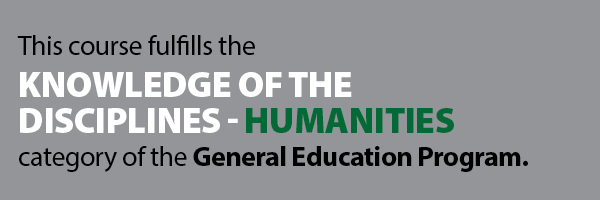PHIL 292 - Philosophy of Buddhism [GEKH]
This course is a survey of the philosophy of the Buddhist tradition, beginning with its origins in India and examining its developments in India and across Asia. Students will be introduced to major issues, figures, and texts of the tradition. As US Diversity course, students will also examine enduring issues of social justice in America through the lens of Engaged Buddhism.
Credit 3 hrs May not be repeated for additional credit
Grade Mode Normal (A-F) Course Rotation
Class-Level Restriction Undergraduate standing

This course meets the requirements for inclusion in Knowledge of the Disciplines - Humanities because it introduces students to the basic texts, concepts, issues, and arguments in a major philosophical tradition. Students will read primary texts that span a wide range of time. Texts may include the early Buddhist sutras, texts from the Abhidharma, Madhyamaka, and Yogacara traditions, the prajnaparamita texts, Zen texts, and the Socially Engaged Buddhist texts. The major concepts may include the Four Noble Truths, the Noble Eightfold Path, dependent origination, meditation, emptiness, metaphysical realism, and the phenomenology of meditation. Understanding many of these concepts will entail the analysis of arguments that support them, such as the argument for no-self and the Madhyamaka defense of emptiness. An ongoing concern throughout the course will be an examination of how Buddhist ideals, concepts, and arguments are relevant to socio-political issues and their ethical and moral foundations, such as egalitarianism, criminal justice, moral responsibility, compassion, and forgiveness.
Notes -
Updates Approved for GEKH 1/2018, effective Fall 2018; New Course 10/2016, effective Fall 2017
Winter 2025 Course Sections
Summer 2025 Course Sections
Fall 2025 Course Sections
Add to Portfolio (opens a new window)
|